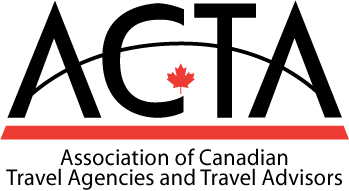New Amendments to the Secure Air Travel Regulations – What Travel Agencies Need to Know!
ACTA recently met with officials from Public Safety Canada to discuss the changes to the Secure Air Travel Act (Bill C-59) and the enabling amendments to the Secure Air Travel Regulations, which become effective on September 18, 2019. Under the new amendments, the screening of passenger’s names will be transferred from commercial air carriers to the Government of Canada. The new regulations outline requirements for accepted pieces of identification to present at the boarding gate as well as new obligations for air carriers when verifying a passenger’s identity.
What does this mean for travel agencies?
1) Domestic and international air carriers are required to collect mandatory information and transmit passenger and flight data to the Canada Border Services Agency (CBSA) system. Mandatory information include:
- Surname, first name and any middle names (whatever is shown on the travel document, i.e. Passport);
- Date of birth (DOB);
- Gender indicator (“M”, “F”, “X”, “U”);
- If travellers have a unique identifier – Canadian Travel Number (CTN)* and have disclosed it to the air carriers
- Reservation record locator number (if collected); and
- Unique passenger reference assigned to them by the air carrier
Travel agencies may be required to collect mandatory information and submit it to the air carriers.
* The Canadian Travel Number (CTN) or unique identifier is a redress system which is under development for people who believe they are having air travel delays because they have the same, or similar, name as someone on the SATA list (sometimes called the “no fly list”).
2) The other change in the new regulations is what is acceptable identification documents at the boarding gate for Domestic travel.
OLD: what was accepted was one valid photo identification issued by a government authority OR two pieces of valid identification issued by a government authority with at least one showing:
- Full name(s)
- DOB
- Gender indicator
NEW: what has changed, is that in both cases, the government authority must be Canadian. In other words, the documentation must be issued by a Canadian government authority.
In addition, documentation NO LONGER ACCEPTED are:
- Fishing licenses,
- Hunting licenses,
- Boating licenses
For any traveller who does not have a Canadian issued identification, they could present any of the travel documents they used to enter Canada – as per immigration rules and the Travel Information Manual (TIM).
Passengers must ensure that the name provided while booking the flight is the same as that indicated on the piece of identification that will be presented at the boarding gate.
Not yet into force
Provisions pertaining to centralized screening will come into force late 2020.
